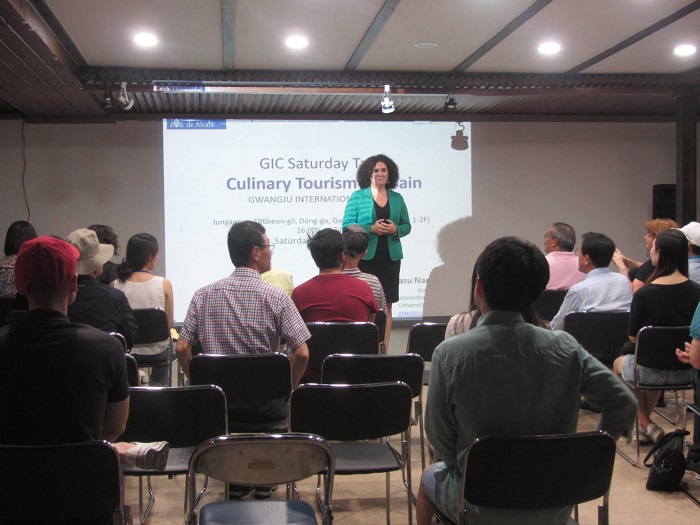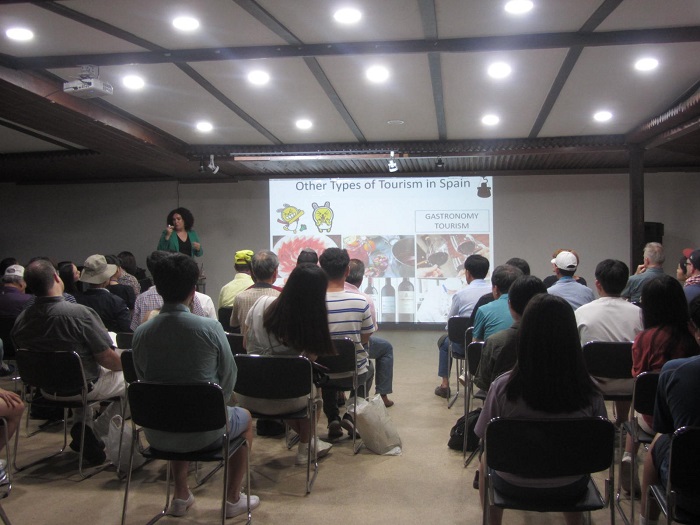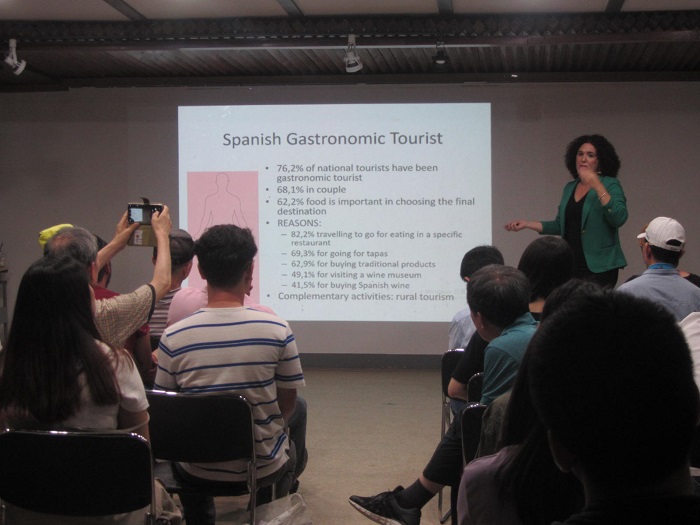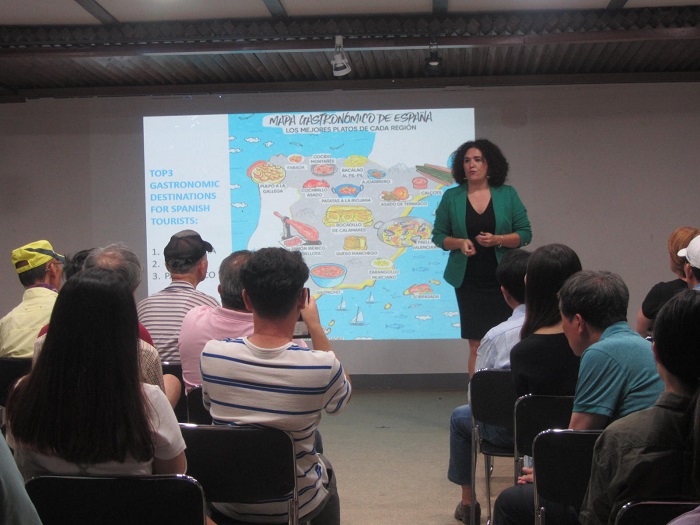GIC Events
[Review] "Culinary Tourism in Spain"
- Name
- GIC
- Date
- 2018-07-24
- Views
- 748 회
▶Date: 14th July
▶Topic: Culinary Tourism in Spain
▶Speaker: Nabona Moreno Aránzazu
▶Review Writer : Azka Nur Afifah (GIC Talk Volunteer)
In this talk, we are delighted to have Professor Aránzazu from University of Alcalá, Spain to share an emerging type of tourism in Spain. She started from introducing Spain as a country and took a quick survey of our knowledge about Spain –anything we knew– to which some people answered by “Hola!” (hello in Spanish), “Salsa” (the dip sauce, not the dance), and for me “Real Madrid”. Except for the Spanish native, the other audience seemed to have a very limited knowledge about Spain. Before Spain became a democratic country, it was ruled under dictatorship since 1939 for almost forty years. Albeit the dictator reign, tourism had become the driver for the country’s economy well before democracy.
One of the most popular tourism type in Spain is ‘sun and beach’ tourism. We usually seek for a less crowded beach for vacation, otherwise be prepared for bad water quality as I experienced in my home country. However, Spanish beaches are recognized for the quality of the environment around its beaches as shown by its blue flag which evaluates for aspects such as hygiene, sanitary condition, and safety. One out of six blue flags worldwide is located in Spain.
With 60 million tourists per year, tourism accounts for 11% of the country’s GDP. Nevertheless, Spain needs to push another type of tourism so as not to heavily rely on sun and beach tourism. Several type of tourisms and some example of related activities are: museum visit, shows, and football for cultural tourism; biking, riding, and hiking for rural tourism; activities related to world forum for business tourism; and eating and drinking local product for culinary tourism.
Food makes for one-third of travel spending; this makes culinary tourism as potential alternative tourism. As one of top five countries for Michelin restaurants, Spain offers exceptional Mediterranean cuisine. Spain has designated World Tapas Day to push the tourism and introduce one of the most versatile Spanish dishes, Tapas. The name of this dish is originated for a piece of food that covers the drink from flies. This definition of tapas develops into a small portion of Spanish cuisine that is served as an appetizer or snack. Professor Aránzazu showed a video that gives illustration of various way to serve tapas: it is indeed a versatile dish!
The available culinary schools in Spain let the students learn from the world-renowned chefs. For example, El Bulli, which is run by highest-profile chef, was transformed from restaurant into a foundation that develops an exhibition lab project for professionals and students interested in gastronomy. It is interesting for me because as an engineering student I have never thought that culinary field also has its own research and development. Professor Aránzazu ended this talk by showing another mouth-watering video of making tapas.




